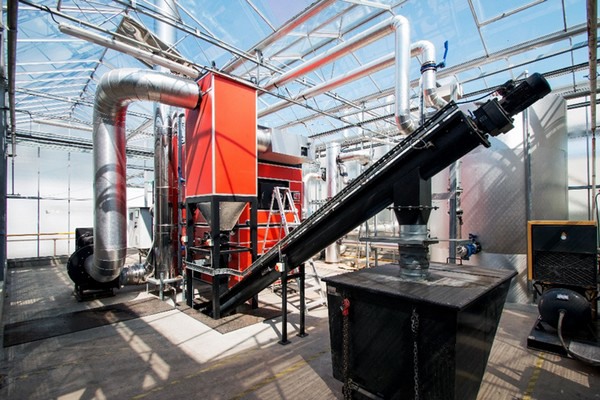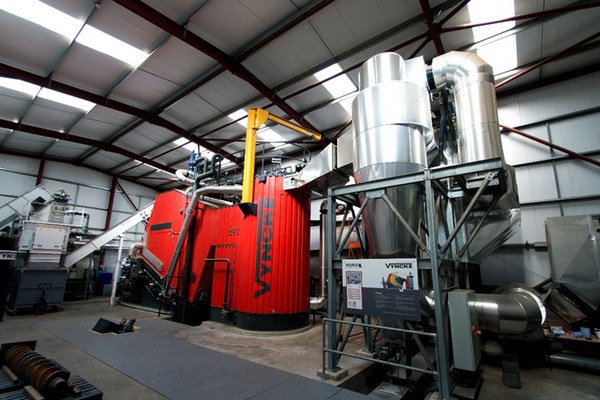With an abundance of environmental legislation and net-zero carbon emissions targets, biomass heating systems are becoming increasingly popular in the horticultural industry. With many nurseries seeing a great additional income from RHI payments and a substantially lower fuel supply cost, it is no wonder organisations are rushing to reap the benefits of these renewable energy systems. Here are some of the main advantages:
1. Renewable Heat Incentive
As the government Renewable Heat Incentive has developed since its introduction in 2011, the tariffs remain attractive, especially for the larger systems in excess of 1000kW. Before 2017 the RHI tariffs did not favour systems over 1000kW, however the revised tariffs now make them much more feasible for nurseries. There is still a great income to be made on the back of installing a Biomass system. Payments are determined through the amount of energy produced on a pence per kWh basis (p/kWh). A lot of Biomass users will see the RHI and fuel savings pay for the total installation costs within 3-7 years, after which the RHI payments over the remainder of the 20-year scheme will directly benefit your business. Larger systems, or systems using a lot of heat will generally benefit from quicker payback periods.
2. Lower costs per kWh
One of the most obvious advantages and main drivers to implementing a biomass boiler is the potential reduction in fuel costs. Due to the ability of being able to use a wide variety of materials as a biomass energy source, costs for fuel itself can be much lower. The most common biomass energy source is wood; in the form of waste wood, pellets or woodchips as well as straw & miscanthus.

Case studies show huge savings in fuel costs and highlight the opportunity to free up extra capital that can be utilised elsewhere in your business. For example: a 2MW boiler running at 4500 hours per year would generate £253,227.60 in RHI payments. A 2MW boiler using oil would cost £493,432.32 per year to run, however, waste wood costs significantly less at £92,647.06 per year giving you fuel cost savings of £401,785.26.
3. Budgeting & cost predictions
The fluctuation in fossil fuel prices, and the volatility of the major fossil fuel producers, makes biomass fuels a far more attractive proposition. An abundance of suppliers, with fixed price contracts available, along with various fuel options from virtually anywhere on the planet means you can enjoy a steady pricing structure, and a consistent supply of fuel.
4. Carbon neutral
Installing a Biomass system is a great way to make your business eco-conscious; Biomass is considered a carbon-neutral form of energy because the CO2 that is released by burning your Biomass matter is later reabsorbed by the growth of the fuel.

5. Help boost the local economy
Studies have shown that the integration of Biomass systems into the commercial sector has had a significant positive impact to the surrounding economies, especially in rural areas. The generation of direct and indirect jobs has been noted as one of the main benefits of biomass. The adoption of land to produce energy crops could be considered as a possible solution to problems such as the abandonment of land, rising unemployment and an exodus of rural areas, with many job opportunities created in the harvesting, processing and supply of biomass fuels to local business.
6. Recycle waste and reduce landfill
If waste wood is being used as fuel for your biomass boiler it doesn’t need to go straight to landfill, meaning you’re creating renewable energy from an otherwise harmful waste product.

7. Automation
Biomass systems can be fully automated and built to suit the existing space and infrastructure you have available. Most systems will include either a walking floor or a top-loading machine to feed the biomass fuel into the combustion chamber when required, meaning you can leave the system to do it’s work, with a need to periodically top up your fuel stores when it’s running low.
8. Build a greener stance for your brand
Not only can you do your part for the environment but promoting sustainable methods can do wonders for your brand image too. Nowadays, many customers are developing a green stance when it comes to the companies they buy products and services from. If you can demonstrate your green energy credentials, your brand will appeal to this growing and highly influential demographic. Many companies have found themselves endorsed by sustainability focused groups and trade shows, opening a wider client base to their business.
Bridge Biomass design, engineer and build bespoke biomass heating systems for commercial organisations with a significant heat demand. Use the details below to book in a free consultation or request further information.
Bridge also specialise in the design and building of Greenhouse Structures and associated services along with Vertical Farming solutions.
For more information: Bridge Greenhouses
Bridge Greenhouses
Keynor Lane
Chichester
West Sussex
PO20 7LL
01243 641789
info@bridgegreenhouses.co.uk
www.bridgegreenhouses.co.uk
